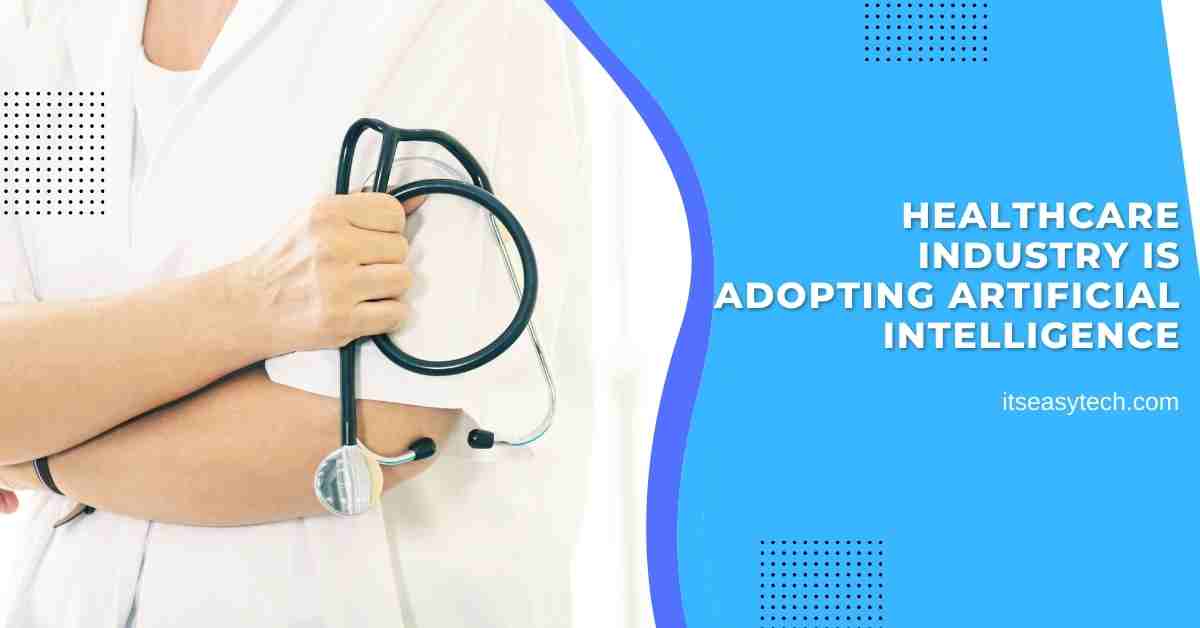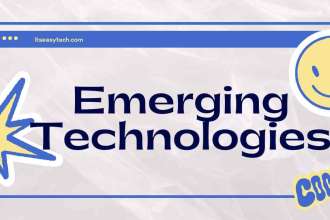As technology advances and healthcare industry needs become increasingly complex, the need for advanced solutions that can help automate tedious processes is becoming apparent. One such solution? Artificial Intelligence (AI). AI has been adopted across many industries, including healthcare, to enable efficient decision-making and drive operational excellence. In this blog post, we’ll look at why the healthcare industry is adopting artificial intelligence and some potential benefits it could bring about for both healthcare providers and patients. Let’s look at five key reasons.
The healthcare industry is one of the most important sectors of the economy. It plays an essential role in helping people maintain their health and wellness. As technology advances, healthcare organizations are increasingly turning to cutting-edge advancements in artificial intelligence (AI) to help improve the quality of care they provide. AI is quickly becoming a major player in the healthcare industry. AI-based technologies are being used to help diagnose and treat illnesses, identify diseases, improve patient outcomes, and reduce costs.
AI is being used to automate many aspects of healthcare, including administrative tasks, patient care, and medical decision-making. One of the primary ways AI is being used in the healthcare sector is to provide better diagnoses and medical treatments. AI can be used to analyze medical images and other forms of data to identify diseases and make more accurate diagnoses. It can also be used to suggest treatment plans, improve patient outcomes, and identify potential risk factors.
AI is transforming the healthcare industry in various ways and is only just beginning to be tapped into its potential. As technology advances and continues to improve, the potential for AI in healthcare will continue to grow. The healthcare industry is embracing AI as a way to improve how care is delivered and to help reduce costs. AI is quickly becoming an essential tool in healthcare and will be increasingly adopted in the coming years.
1. More Efficient Administration
The healthcare industry is rapidly adopting Artificial Intelligence (AI) due to its ability to automate complex administrative tasks and its potential to improve patient outcomes. AI-powered technology can streamline many tedious and time-consuming administrative tasks associated with healthcare, such as patient scheduling, billing, medical transcriptions, recordkeeping, and many more.
Moreover, AI solutions enable doctors to retrieve detailed medical history and other helpful information quickly and accurately to better understand patients’ overall health conditions before prescribing any treatment. Therefore, efficient administration through AI ultimately helps reduce costs across various facets of the healthcare industry while maintaining or improving patient outcomes.
2. Addresses Neurological Challenges with Brain-Computer Interfaces
Healthcare AI and brain-computer interfaces are emerging technologies revolutionizing how neurological challenges are addressed in modern healthcare. With brain-computer interfaces, electrical signals from the brain can control external machines and prostheses. Healthcare Artificial Intelligence systems can interpret this data to interpret patterns, identify potential issues, and accurately monitor cognitive abilities.
Healthcare AI is also helping facilitate new treatments for neurological disorders such as Alzheimer’s Disease by determining biomarkers early on in a patient’s health history, allowing treatments to be better tailored toward individual needs. By utilizing brain-computer Interface technology in combination with Healthcare Artificial Intelligence systems, the healthcare industry can provide more accurate diagnoses and allow for effective treatments that could never have been achieved.
3. Less Invasive Biopsies
Healthcare AI is quickly becoming an integral part of diagnosis and treatment planning because of the potential benefits it could bring. AI technology can help doctors make more accurate predictions and manageable, less invasive biopsies. Healthcare AI leverages sophisticated algorithms to quickly analyze data and make recommendations without resorting to costly and potentially harmful traditional exams or biopsies. This reduces costs associated with standard procedures and decreases surgery risks since laser-based technologies are much less invasive than conventional procedures.
Healthcare professionals have turned to AI solutions to reach a higher level of accuracy than human capabilities alone can provide. Thanks to the precision of Healthcare AI, people now have access to safer, quicker diagnoses without all the risks or expensive costs tied in.
4. Improves Immunotherapy to Treat Cancer
It’s no surprise that the healthcare industry is rapidly adopting Artificial Intelligence (AI): AI has the potential to revolutionize medical practices, making treatments faster and more efficient. Improving immunotherapy techniques is one area where AI is leading the way in cancer research.
Immunotherapy helps boost a patient’s immune system to fight cancer cells. While it shows promise as a treatment option, there are still challenges associated with the delivery and efficacy of these treatments due to the complexity and unpredictability of each patient’s immune system. However, by using AI-driven diagnostic tools, healthcare professionals can better understand individualized levels of risk for disease progression, enabling them to personalize therapies for improved outcomes.
This technology can also help develop personalized vaccines specific to each tumor profile and may be used more effectively than current treatments with fewer side effects. It’s clear why the healthcare industry is turning to AI for help; by applying AI solutions to immunotherapy techniques, new hope is generated for improved patient care outcomes.
5. Better Patient Monitoring
Artificial Intelligence (AI) is rapidly becoming a vital component of the healthcare industry, and one of the main reasons for this is better patient monitoring. By incorporating AI into patient care, healthcare professionals can keep track of their patient’s health data much more effectively than before. This allows them to identify any changes earlier and take necessary action to prevent a medical emergency. Furthermore, AI can be programmed to analyze data more efficiently than humans by providing healthcare professionals with optimized care plans for everyone. As a result, people can get access to more tailored treatment options, which can improve overall outcomes when it comes to patient care.
Conclusion
As you can see, there are many reasons why AI is becoming increasingly important within the healthcare sector today, saving time and money while improving patient care and outcomes along with enhancing research capabilities all at once. As more hospitals begin adopting these technologies into their existing systems, we can expect a dramatic shift towards better accessibility and availability of quality medical services that will benefit providers and patients in the years ahead.
The healthcare industry is rapidly adopting AI to improve the way it delivers care and services. AI is already being used to automate certain tasks and processes, uncover insights from medical records, develop new drugs and treatments, and more. As AI continues to evolve and become more powerful, the healthcare industry will likely continue to embrace the technology and use it to revolutionize how it works.
Further Reading
10 Revolutionary Internet Technologies That Changed The World
Impact of Modern Technology in Education: How Technology is changing the way we learn












